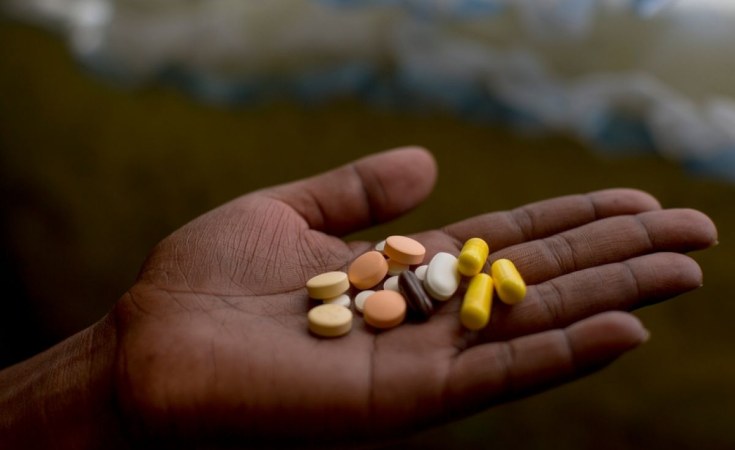South Africa's National Department of Health is set to receive a donation of child-friendly formulations of several medicines used to treat drug-resistant tuberculosis (DR-TB). It is expected that over the next year the donation will spare roughly 200 children the substantial difficulties associated with taking DR-TB medicines meant for adults.
The donations form part of a multi-country initiative of the Stop TB Partnership's Global Drug Facility (GDF). Children in several other countries have already been provided with child-friendly formulations of DR-TB medicines through the initiative.
According to documents seen by Spotlight, the child-friendly formulations being donated to South Africa include dispersible formulations of the drugs delamanid, levofloxacin, and linezolid, and low-dose tablets of the drug clofazimine. The medicines will be brought into the country in terms of section 21 licenses granted by the South African Health Products Regulatory Authority (SAHPRA) at the end of August. The company importing the medicines is Equity Pharma.
Dr Norbert Ndjeka, chief director of TB control and management at the National Department of Health, yesterday confirmed to Spotlight that the donation had been approved by the Director-General of Health Dr Sandile Buthelezi. Ndjeka said that letters about the donation had been sent to the heads of health in the Eastern Cape, KwaZulu-Natal, and the Western Cape and that a meeting will be called next week to "coordinate this activity".
Frustration over delay
While DR-TB doctors Spotlight spoke to are thrilled with the donation, there was also a sense of frustration over how long it has taken to finalise.
"This donation was first offered to South Africa in April of 2022 and SAHPRA approved the import in September," says Dr Jennifer Furin, a steering committee member of the Sentinal Project on Pediatric Drug-Resistant Tuberculosis. "It is unclear why the process was delayed for so long since these medications are all recommended for the treatment of children by the World Health Organization and the South African National Department of Health. They are quality assured and provide a much more accurate and acceptable way to care for children sick with DR-TB. It is a pity that paperwork and bureaucracy seemed to take precedence over the needs of vulnerable children. And while we are thrilled that South Africa is finally able to accept the donation, we have to wonder where their priorities are." (The Sentinel Project on Pediatric Drug-Resistant Tuberculosis participates in the Stop TB Partnership/GDF initiative and Furin has been actively involved in facilitating the donation.)
When Spotlight first contacted Ndjeka about the donation programme at the end of July, he acknowledged that even then there were already delays. He indicated at the time that they were awaiting authorisation from SAHPRA before the Director-General of Health could approve the donation of the medicines. Following the green light from SAHPRA, Spotlight wrote to Ndjeka again early in September to ask when the medicines would be available but received no reply until we contacted him again this week. It is not clear why it took over three months from SAHPRA giving the green light to the Department of Health signing off the paperwork relating to the donation.
Why child-friendly formulations are important
There are multiple reasons why the new child-friendly formulations are preferable to the old adult formulations of DR-TB treatment, explains Furin.
"First", she says, "they have to be cut or split and crushed in order to achieve the recommended weight-based dosing for smaller children. The adult tablets were never meant to be manipulated in this way and this can result in under-dosing or over-dosing for kids, risking their cures and potentially causing more side effects."
"Having to cut or split and crush the tablets also makes it very difficult for caregivers to prepare the medications for children, which can result in prolonged and needless hospitalisation," says Furin. "Finally, having to take cut or split tablets can be challenging for children. When asked, they describe pain caused by having to swallow fragments of tablets and bitter tastes. Because the tablets are hard to swallow, providers and caregivers often use physical and psychological threats to make children take their medicine, which adds to the trauma of DR-TB treatment for these little ones."


